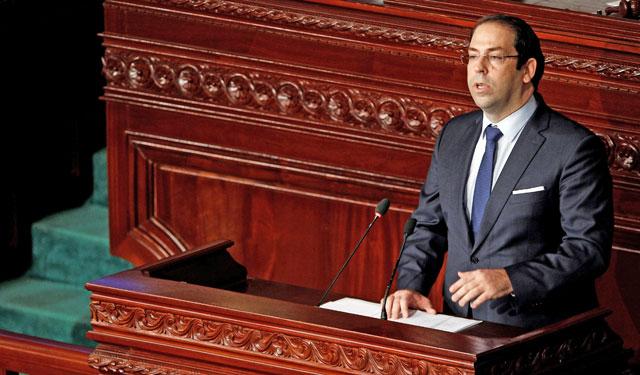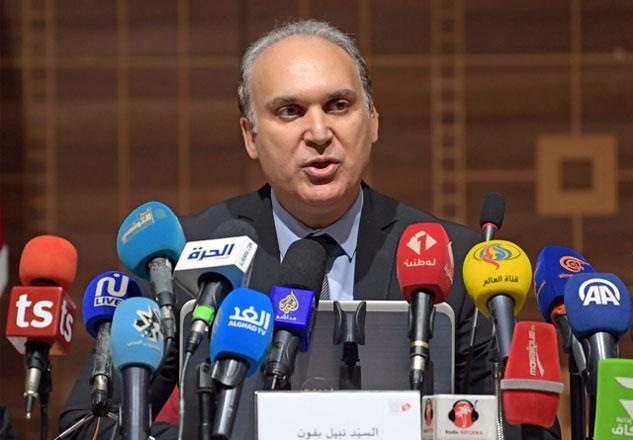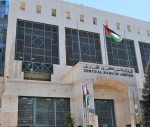You are here
Tunisian president wants to amend constitution to dilute PM power
By Reuters - Mar 20,2019 - Last updated at Mar 20,2019

Tunisia’s Prime Minister Youssef Chahed speaks at the Assembly of People’s Representatives in Tunis, Tunisia, on September 11, 2017 (Reuters photo)
TUNIS — Tunisia’s president called on Wednesday for changes to the new constitution to give the presidency more power, in the latest escalation of a dispute between the two highest offices in the country.
The constitution, adopted in 2014 after the uprising of 2011 that ousted autocrat Zine Al Abidine Ben Ali, significantly erodes the previously extensive power of the presidency and gives the prime minister and Parliament a much bigger role.
But President Beji Caid Essebsi and Prime Minister Youssef Chahed have been at loggerheads since last year, culminating in the president’s son being suspended from the ruling party in September.
Essebsi has called on Chahed to resign but he defied him and formed a new governing coalition last November with the moderate Islamist Ennahda Party.
Now, with a parliamentary election due in October and a presidential vote starting in November, Essebsi is calling for an overhaul of the nation’s ruling charter.
The parliamentary race is expected to be fought closely by Ennahda, the more secular Tahya Tounes Party of Chahed, and the Nidaa Tounes Party now led by Hafedh Caid Essebsi, the president’s son. No one has yet declared their candidacy for the presidency.
“The president has no major functions and the executive power is in the hands of the prime minister,” Essessbi said in a speech broadcast on state television at the Palace of Carthage to mark Independence Day.
“It would be better to think about amending some chapters of the constitution,” he said. The president controls defence and foreign policy — both in reality relatively minor policy areas.
The political wrangling over the past months has alarmed donors who have kept the country afloat with loans granted in exchange for a promise of reforms such as cutting a bloated public service.
The president’s son has accused Chahed of failing to tackle high inflation, unemployment and other problems.
The North African country has been hailed as the Arab Spring’s only democratic success, because protests toppled Ben Ali without triggering the violent upheaval seen in Syria and Libya.
But since 2011, nine Cabinets have failed to resolve Tunisia’s economic problems, which include high inflation and unemployment, and impatience is rising among lenders such as the International Monetary Fund.
Annual inflation hit a record high of 7.5 per cent in 2018 as the dinar currency tanked, making food imports more expensive.
Related Articles
TUNIS — Tunisian Prime Minister Youssef Chahed said on Tuesday that the president’s son had destroyed the ruling Nidaa Tounes Party and that
TUNIS — Tunisian Prime Minister Youssef Chahed will stand in the country’s upcoming presidential election, his party announced on Wednesday,
TUNIS — Tunisian Prime Minister Youssef Chahed said on Tuesday a change of government would put the economy at risk and shake the confidence















